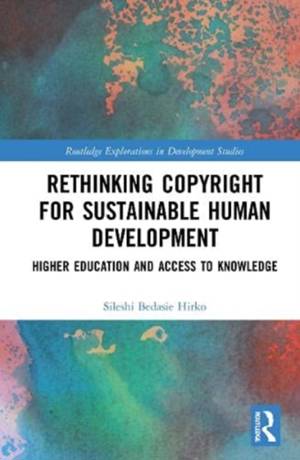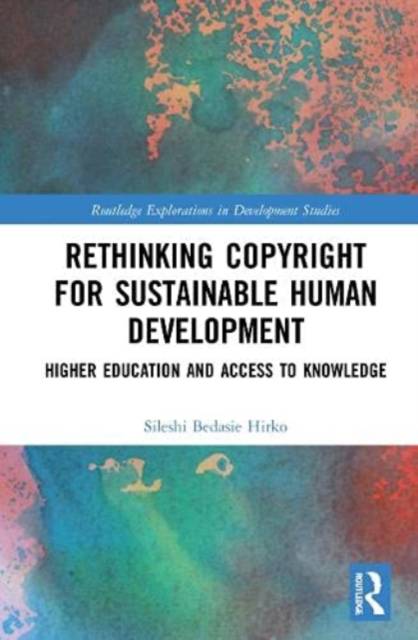
- Afhalen na 1 uur in een winkel met voorraad
- In januari gratis thuislevering in België
- Ruim aanbod met 7 miljoen producten
- Afhalen na 1 uur in een winkel met voorraad
- In januari gratis thuislevering in België
- Ruim aanbod met 7 miljoen producten
Rethinking Copyright for Sustainable Human Development
Higher Education and Access to Knowledge
Sileshi Bedasie HirkoOmschrijving
This book explores the interface between copyright and higher education, and their complementarities for the advancement of sustainable human development. In its broader sense, the concept of human development is noted as a set of freedoms and human capabilities that are essential for human flourishing.
Adopting a rights-based human development and capability approach (HDCA), this book primarily examines the relevant policy and legal flexibilities under the existing international copyright system, and their implications for access to knowledge required for creative innovation and higher education. Exploring the interfaces between copyright and higher education, this book argues that an unbalanced and restrictive copyright system impedes reasonable access to knowledge, and stifles creative and learning freedoms or capabilities. In effect, a restrictive copyright system results in serious ramifications for sustainable human development. In view of its findings, this book underscores the need for rethinking copyright and reframing its relevant flexibilities as users' rights that are vital for promoting creative and learning capabilities towards sustainable human development. Further, the book emphasizes the complementarities between copyright and higher education, and their joint roles for sustainable human development.
Given its application of the HDCA to explore ranges of interlinked topics, this book will be of a great interest to researchers across the fields of intellectual property law, innovation, global development, human rights, and higher education.
Specificaties
Betrokkenen
- Auteur(s):
- Uitgeverij:
Inhoud
- Aantal bladzijden:
- 220
- Taal:
- Engels
- Reeks:
Eigenschappen
- Productcode (EAN):
- 9781032102221
- Verschijningsdatum:
- 26/11/2021
- Uitvoering:
- Hardcover
- Formaat:
- Genaaid
- Afmetingen:
- 156 mm x 234 mm
- Gewicht:
- 503 g

Alleen bij Standaard Boekhandel
Beoordelingen
We publiceren alleen reviews die voldoen aan de voorwaarden voor reviews. Bekijk onze voorwaarden voor reviews.









